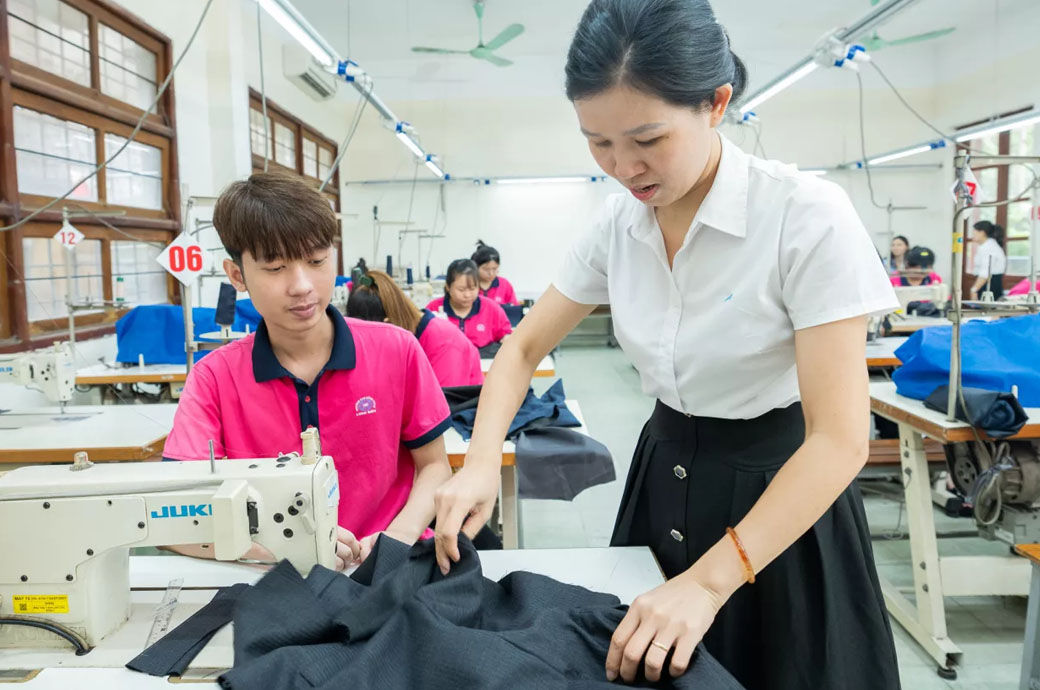Led by VITAS, this group includes 19 members, representing leading industry enterprises, education, and training providers such as universities and TVET institutions specialising in textiles and garments, and a sector trade union representative. The initiative aims to foster partnerships between enterprises and education/training providers, reducing skill mismatches while improving the relevance and quality of skills supply to meet the industry’s development needs.
The Vietnam Textile and Garment Association (VITAS), with ILO support, has launched a working group to enhance skills development in the textile and garment sector.
The group, consisting of 19 members from industry, education, and trade unions, aims to address skill mismatches, improve training quality, and foster partnerships between businesses and training providers.
“Skills challenges vary by sector, and the textile and garment industry in Vietnam is now at a crossroad and in need of transforming towards innovation and sustainability. Sector stakeholders are best positioned to advise on the necessary skills, how these skills can help the sector grow and create more and better jobs, and what actions are required to overcome skills challenges. The establishment of the working group is a crucial starting milestone. It enables a sectoral approach to collectively identify and respond to common skills challenges to meet the sector’s development strategy goals,” said Akiko Sakamoto, senior specialist on skills and employability, decent work team, ILO regional office for Asia and the Pacific.
The group’s initial work plan was developed collaboratively with tripartite partners: representatives of the government, workers and employers.
“We aim to begin with small but practical activities that enable businesses, educators, and training providers to collaborate effectively. The working group is expected to evolve into a sector skills council for the textile and garment sector with more ambitious objectives in the near future, once the legal framework and other conditions are in place,” said Truong Van Cam, VITAS vice president and secretary general.
Nguyen Chi Truong, director of the skills department at the Directorate of Vocational Education and Training (DVET), Ministry of Labour, Invalids and Social Affairs (MOLISA), applauded the launch of the initiative. He believes that the established model will foster more active industry engagement in skills development and TVET, thereby enhancing the impact of skills investment on business performance.
The establishment of the working group is supported by the ILO’s Future of Work in Textile and Clothing: Forecasting and developing skills to advance decent work and productivity in the sector project,” funded by the governments of the Netherlands and Japan. This effort aims to implement the recommendations from the skills needs assessment paper and sectoral skills strategy developed by the ILO and VITAS in collaboration with tripartite partners during 2023-24.
By addressing skills mismatches and fostering collaboration, the working group seeks to support the textile and garment sector’s ongoing development. While there is still much work ahead, this initiative represents a step toward aligning skills with industry needs and promoting more sustainable practices within the sector.
Fibre2Fashion News Desk (RR)


